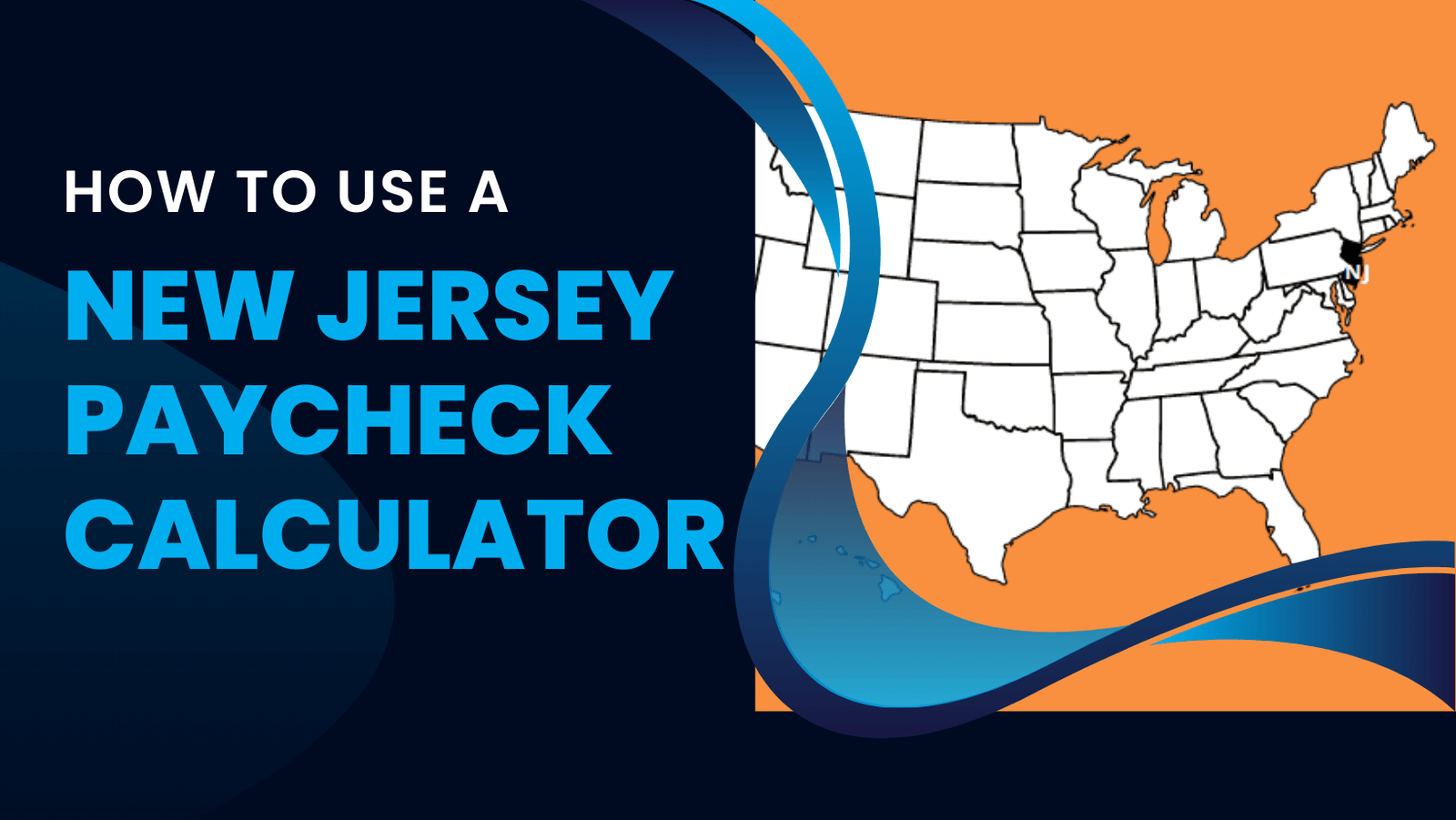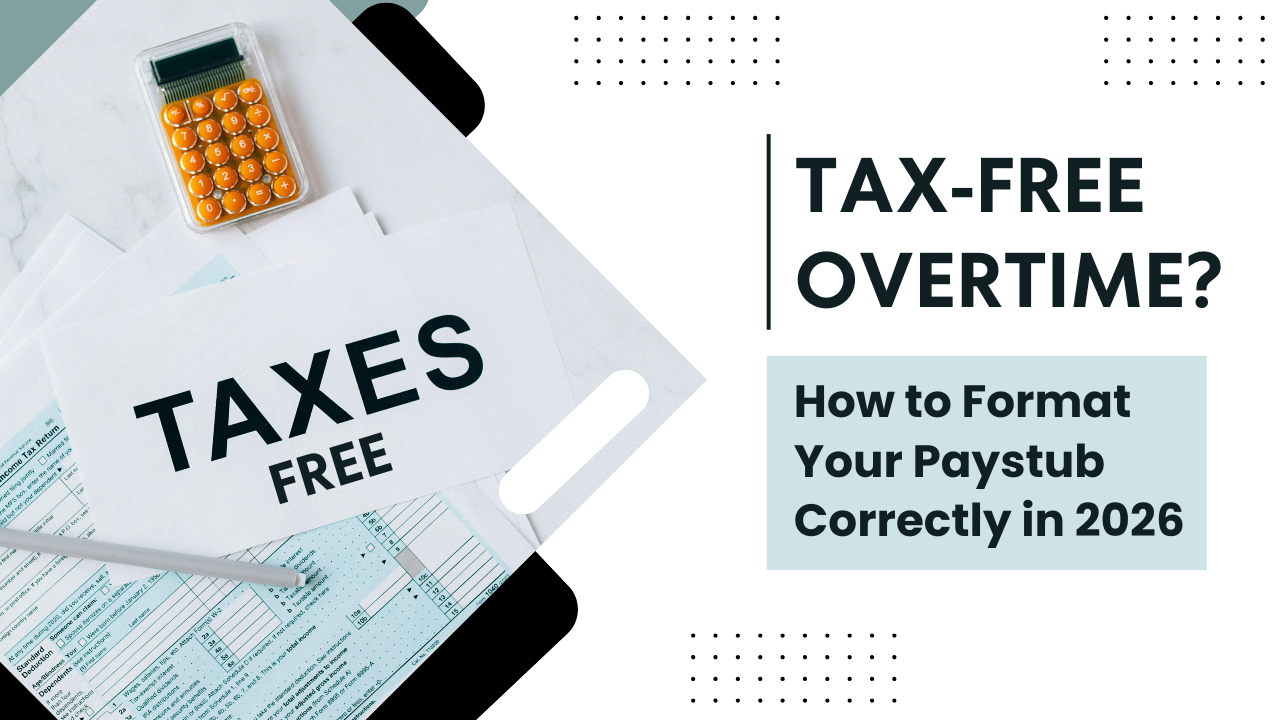It is important to handle your finances, so it seems fair for you to know what a check stub looks like. A New Jersey paycheck calculator can help you plan better financially if you are a resident. Below is a step-by-step guide to using the New Jersey paycheck calculator.
Understanding the Basics
A paycheck calculator is simply an online tool for calculating net pay after all deductions. It factors in federal and state taxes, social security, Medicare, and other potential deductions such as health insurance and retirement contributions.
Steps to Using a New Jersey Paycheck Calculator
Gather Necessary Information:
So, keep the following information at hand to have a nice score.
- Gross income: The total of your salary you make before any deductions are made.
- Filing status: Single, married, properly joint, R2; head of household.
- Pay frequency: Pay frequency (can be weekly, bi-weekly, semi-monthly, or monthly).
- Additional income: Any other profit.
- Pre-tax deductions: Retirement plan contributions, health insurance premiums, etc.
- Post-tax deductions: Expenses that are deducted after taxes, such as union dues and other withholdings.
Enter Your Information:
Fill in the details in the calculator. All data points should be placed in the relevant fields in most calculators. These results must be valid, so try to be as accurate as you can.
Review Your Results:
After you enter all your information, the calculator will give you a full breakdown of your paycheck. This includes your net pay, federal and state tax withholdings, social security contributions, and Medicare deductions.
Benefits of Using a Paycheck Calculator
Budgeting and Financial Planning:
Paycheck Calculator: A paycheck calculator gives you a sense of how much money you can expect to take home after taxes and other deductions. This is the information you need to know so you can budget accordingly! This is where you determine the expenses that really matter: rent, groceries, and utilities, as well as savings and discretionary spending.
Tax Planning:
If you use a paycheck calculator, this gives you an idea of how much taxes have been taken out during the year. This information is valuable for preparing for tax season since it will give you some idea of your tax liability or potential refund. If you are having too much withheld, it means your check will be smaller each month—if you kick up a fuss at work, then you could pretty easily do all that.
Evaluating Job Offers:
How much of a raise will you need to take home more in a new or promoted job? Well, a paycheck calculator gives you the opportunity to insert distinct salary figures and systematically analyze the net income. This will give you an advantage in negotiating your job offer and salary like a pro.
Planning for Deductions:
If you participate in retirement plans or health savings accounts, a paycheck calculator will illustrate how these deductions affect your net pay. Realizing this might help you determine how much you can give without compromising your monthly expenditure.
Preparing for Life Changes:
Major life changes such as marriage, children, or purchasing a house can have a big knock-on effect on your finances. If you are in one of these few places and need assistance understanding how these changes impact your net pay, try out a paycheck calculator. For some things, like your filing status or dependents (if you’re newly married or had a child), what changes at the IRS affect your paycheck instead of the return?
Tips for Maximizing the Benefits
Regular Updates:
Make sure to redo the information you enter into the paycheck calculator regularly, especially if your income, filing status, and/or deductions change. This will ensure you always have the truth about your numbers and accounts.
Experiment with Scenarios:
Run different scenarios in your calculator. For instance, check what happens to your net pay when you increase your retirement contributions or how a salary raise might put you into another tax bracket and affect your withholdings. These experimentations can act as a great proxy for some long-term financial planning.
Stay Informed About Tax Laws:
Keep current on changes in federal and New Jersey state tax laws to ensure your calculations are correct. Most paycheck calculators are updated on a regular basis and adjusted to include these changes, but make sure you confirm.
Consult with Financial Advisors:
In addition to using a paycheck calculator for accurate numbers, it would probably be helpful to meet with a financial advisor. Someone who allows understanding of other tricky financial situations and provides guidance on what to do in difficult financial conditions is a professional.
Conclusion
New Jersey Paycheck Calculator — Take Control of Your Finances. Knowing how you use this tool or when to use it can inform important decisions about your budget, tax strategy, and even job offers.
Simplify Your Finances: Utilize the South Carolina Paycheck Calculator
FAQ's
What information do I need to use a New Jersey paycheck calculator?
+
You'll typically need details like your gross pay, filing status, allowances, and any deductions like taxes and insurance.
Can a paycheck calculator help me understand my net pay accurately?
+
Yes, it provides an estimate of your take-home pay after taxes and deductions, giving you a clear picture of your earnings.
How frequently can I use a New Jersey paycheck calculator?
+
You can use it as often as needed, especially when there are changes in your income or deductions, to stay informed about your finances.
Are New Jersey paycheck calculators reliable for budgeting purposes?
+
Yes, they offer reliable estimates, aiding in budget planning by showing how much you'll actually bring home each pay period.





